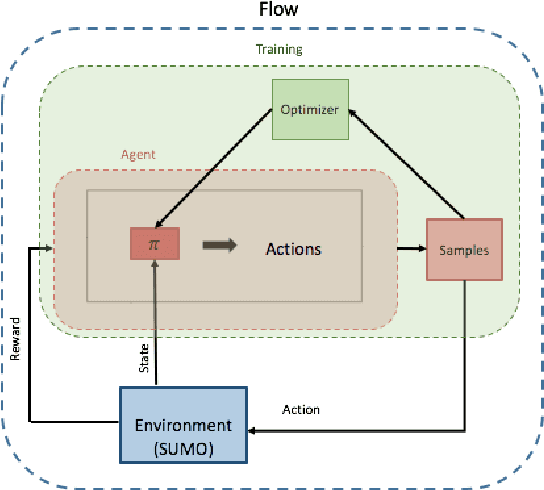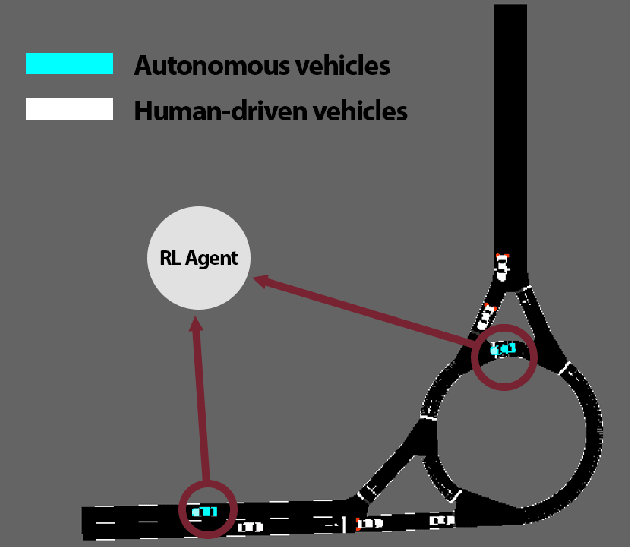Logan Beaver
A Global Games-Inspired Approach to Multi-Robot Task Allocation for Heterogeneous Teams
Jan 02, 2025



Abstract:In this article we propose a game-theoretic approach to the multi-robot task allocation problem using the framework of global games. Each task is associated with a global signal, a real-valued number that captures the task execution progress and/or urgency. We propose a linear objective function for each robot in the system, which, for each task, increases with global signal and decreases with the number assigned robots. We provide conditions on the objective function hyperparameters to induce a mixed Nash equilibrium, i.e., solutions where all robots are not assigned to a single task. The resulting algorithm only requires the inversion of a matrix to determine a probability distribution over the robot assignments. We demonstrate the performance of our algorithm in simulation and provide direction for applications and future work.
Simulation to Scaled City: Zero-Shot Policy Transfer for Traffic Control via Autonomous Vehicles
Feb 22, 2019



Abstract:Using deep reinforcement learning, we train control policies for autonomous vehicles leading a platoon of vehicles onto a roundabout. Using Flow, a library for deep reinforcement learning in micro-simulators, we train two policies, one policy with noise injected into the state and action space and one without any injected noise. In simulation, the autonomous vehicle learns an emergent metering behavior for both policies in which it slows to allow for smoother merging. We then directly transfer this policy without any tuning to the University of Delaware Scaled Smart City (UDSSC), a 1:25 scale testbed for connected and automated vehicles. We characterize the performance of both policies on the scaled city. We show that the noise-free policy winds up crashing and only occasionally metering. However, the noise-injected policy consistently performs the metering behavior and remains collision-free, suggesting that the noise helps with the zero-shot policy transfer. Additionally, the transferred, noise-injected policy leads to a 5% reduction of average travel time and a reduction of 22% in maximum travel time in the UDSSC. Videos of the controllers can be found at https://sites.google.com/view/iccps-policy-transfer.
 Add to Chrome
Add to Chrome Add to Firefox
Add to Firefox Add to Edge
Add to Edge